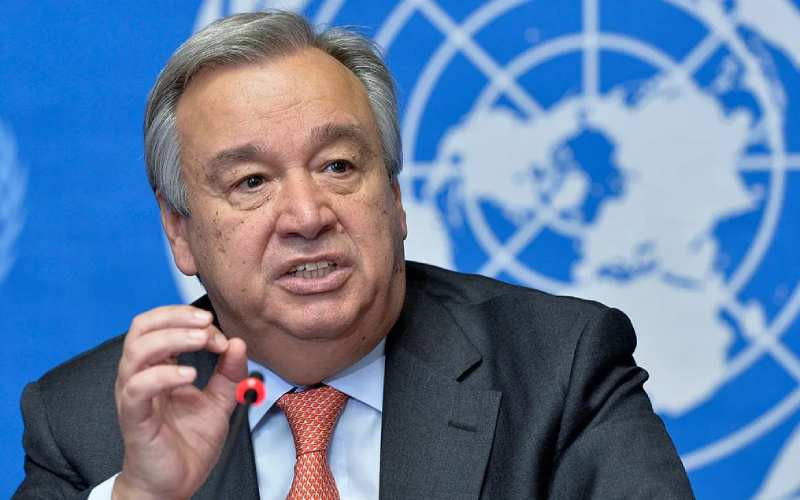×
The Standard e-Paper
Join Thousands Daily

The United Nations Secretary-General Antonnio Guterres has called on world leaders to cooperate, and unite in the fight against climate change or perish together.
He made the utterances during the COP 27 summit in Sharm el Sheikh, Egypt on Monday, November 6.